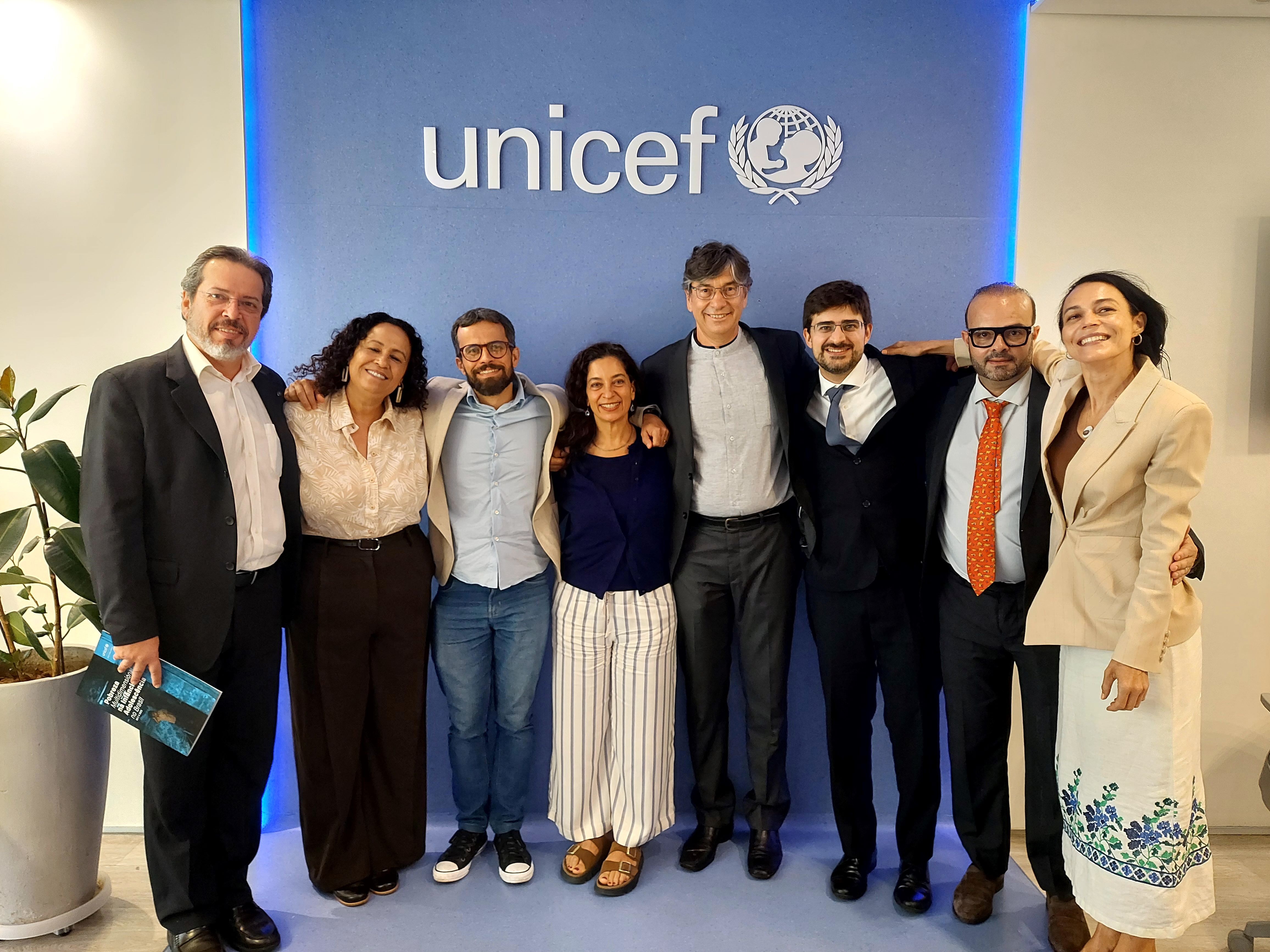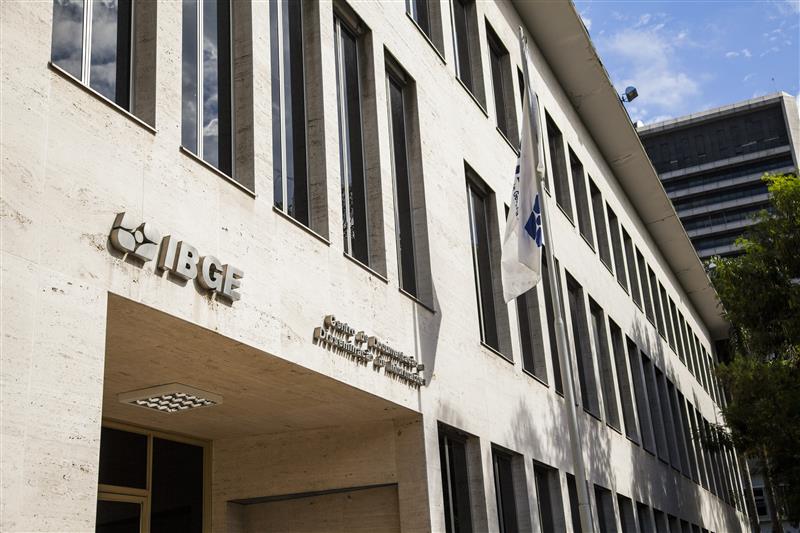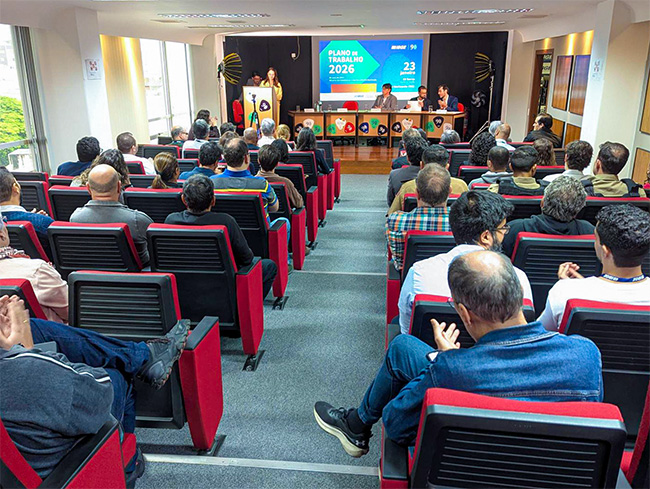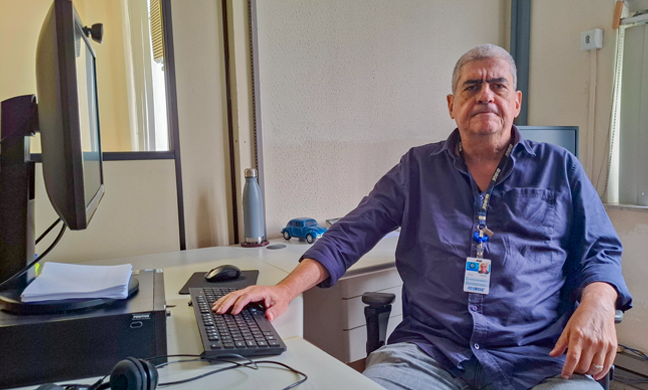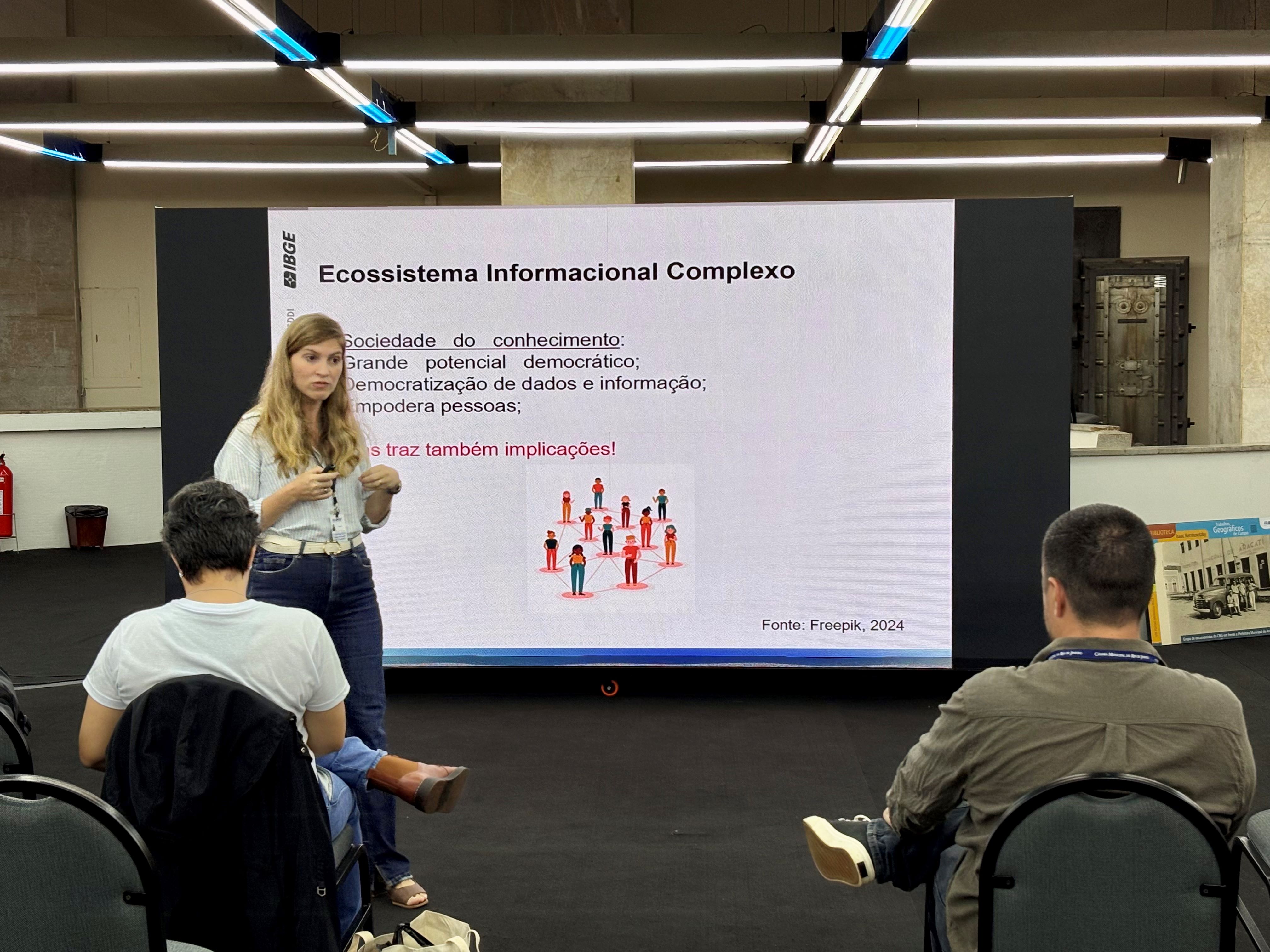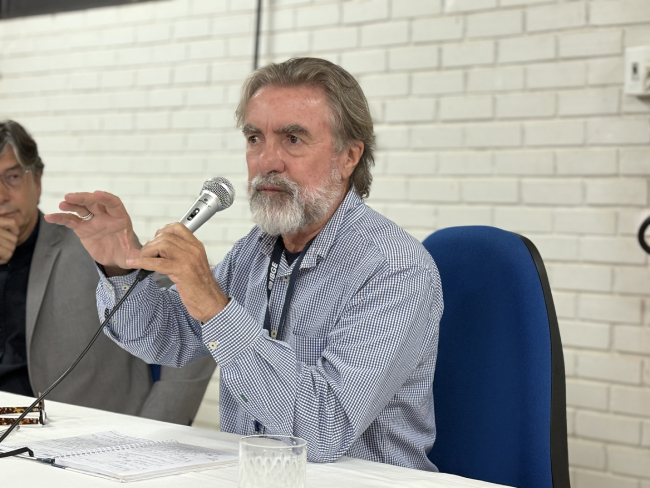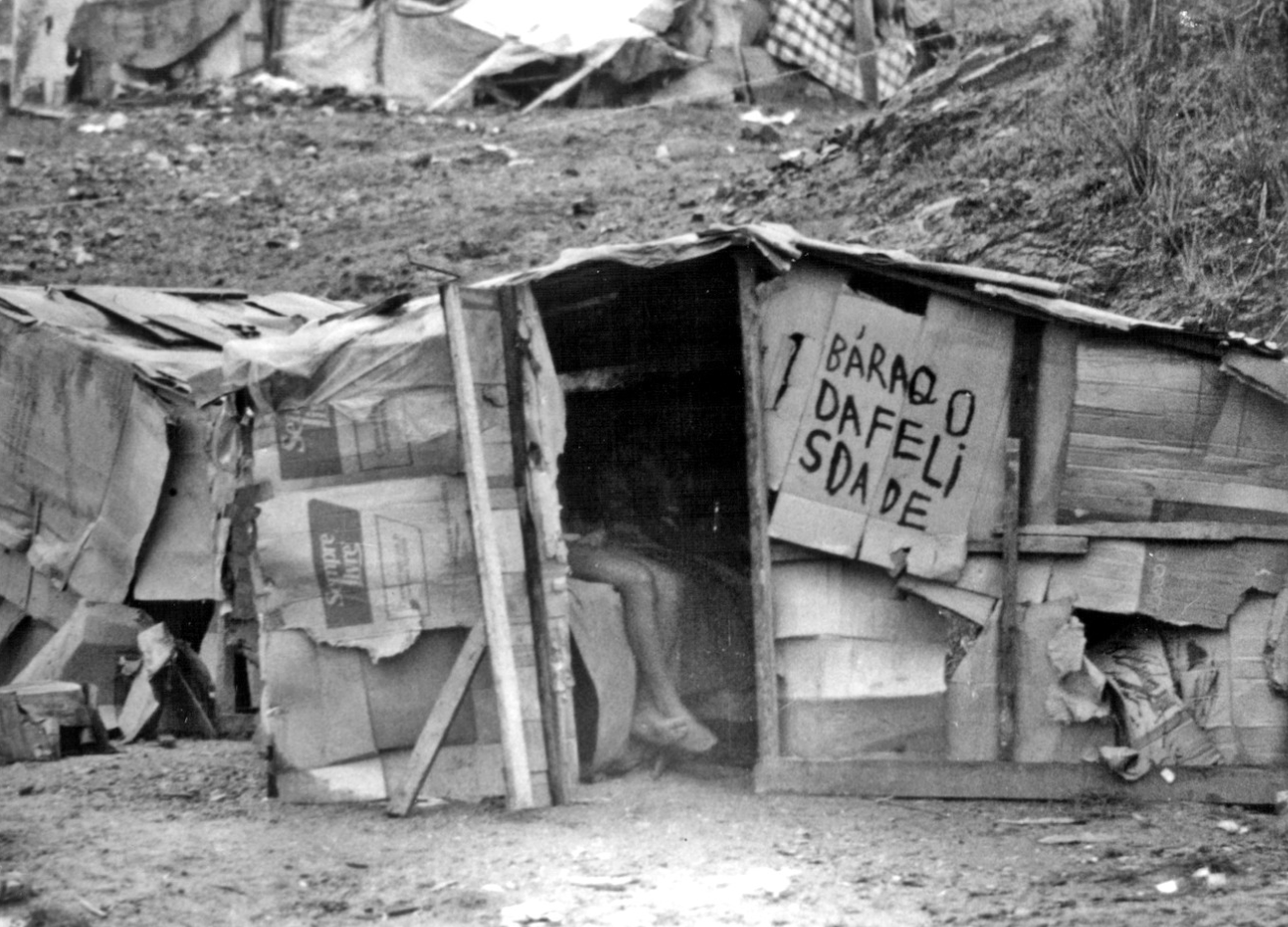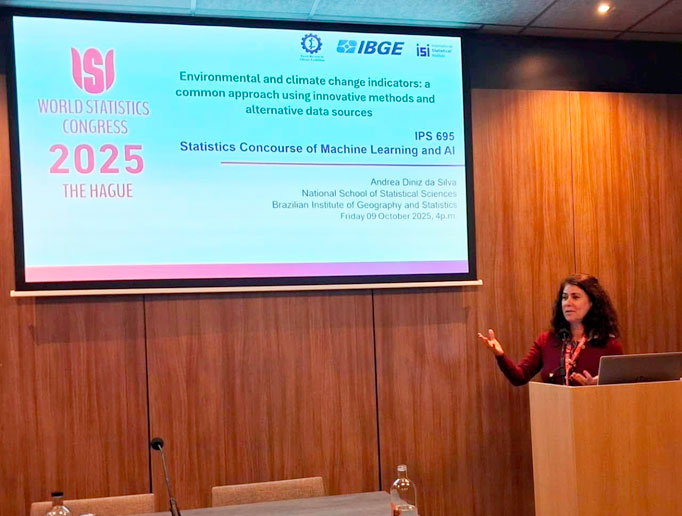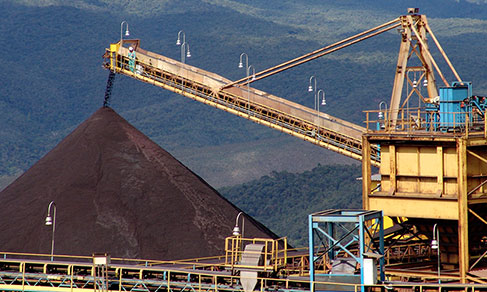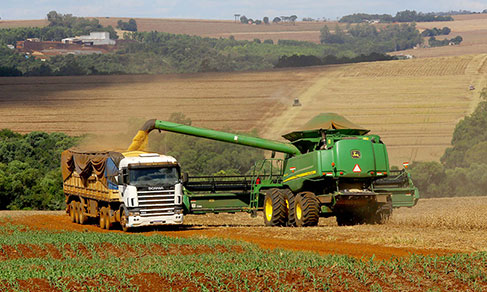2022 Census
In partnership with the Bank of the Northeast, IBGE releases data from the National Address List for Statistical Purposes in Fortaleza (CE)
June 14, 2024 04h27 PM | Last Updated: June 21, 2024 01h06 AM
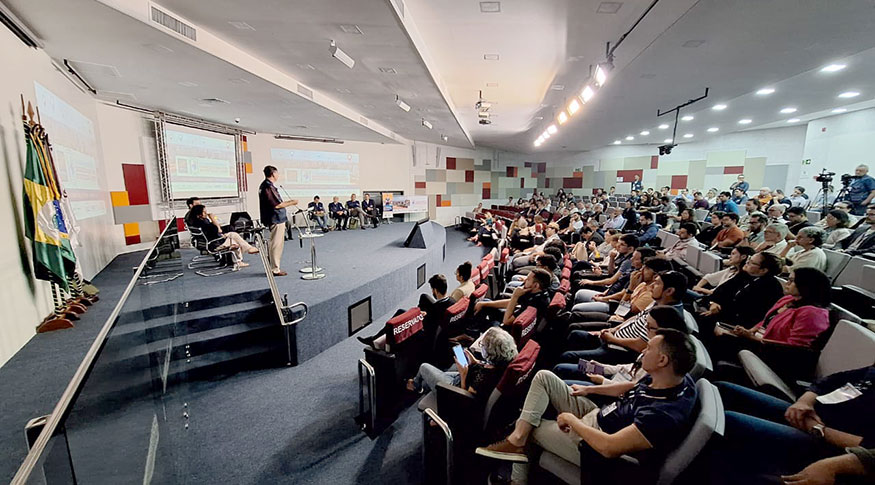
The Brazilian Institute of Geography and Statistics (IBGE) released, today, results from “the National Address List for Statistical Purposes (CNEFE)”, at Celso Furtado Auditorium, located at the headquarters of the Bank of the Northeast, in the south area of Fortaleza (CE). The event was attended by more than 180 people, while many others watched it online at Digital IBGE.
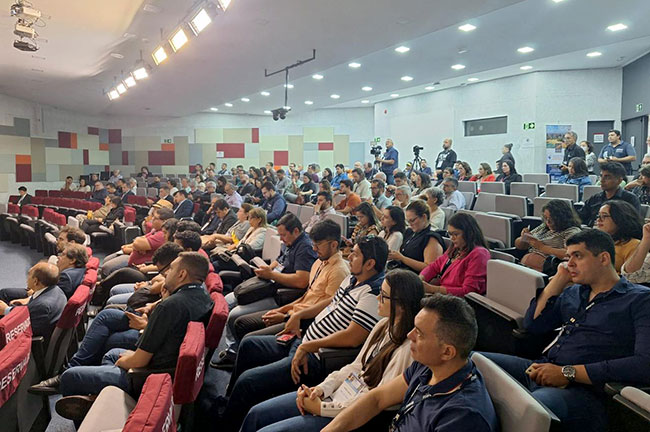
A cultural performance by Jessivan Cardoso, who played the national anthem of Brazil, opened the event. Then the IBGE technical team proceeded with the presentation of data relative to the complete address attributes for the 2022 Census data. The director of Surveys, Elizabeth Hypólito, the director of Geosciences, Ivone Lopes Batista, the Census Coordinator, Gustavo Junger, the Coordinator for Census Operations, Wolvey Menezes, the manager of the Address List for Statistical Purposes (CNEFE), Eduardo Baptista and the manager of the Geomatics division, Aline Lopes Coelho, represented the IBGE.

Marcio Pochmann, president of the IBGE, observed that “this release is a way of returning the support we received from city and state governments during the 2022 Census operation. Other countries faced many difficulties to conduct their population censuses and the IBGE succeeded greatly due to the hard work of all its civil servants.”
The president of the IBGE also explained the relevance of results. “What was presented in this release places the IBGE as a globally relevant institution for the generation of georeferenced data. They can be a great reference for public policies in the country and to plan what we want for the next twenty years, thus expanding the horizon for Brazil.”

Alfredo Pessoa, president of the Ceará Research Institute on Economic Strategy (IPECE), spoke on behalf of the state governor, Elmano de Freitas, and added that “the IBGE moves forward not only due to the work of superintendents, but also to the effort made by the many enumerators of the Institute. These data are extremely important for public state administrators in Brazil and also in the other 184 municipalities of Ceará”.
Aldemir Freire, planning director of the Bank of the Northeast, attended the event on behalf of the president, Paulo Câmara, and recalled his background history as an IBGE civil servant, mentioning the development of activities to foster public policies. “I am an IBGE civil servant and have worked in Other Censuses. I know it is valuable work and that it represents the technical expertise of the Institute and of its 180 thousand plus enumerators who visited housing units in our country. These address data are relevant for municipal and state administrators; we got to develop policies for many establishments. This list facilitates other surveys and analyses,” he highlighted.
Ivone Lopes Batista explained that “this release is essentially a piece of geoinformation data, which locates all the units in the country, making it possible to identify our territory and departing from aggregated information, present the characteristics of the territory. This product is relevant for public and private management, and contributes to risk actions and other public policies in the country. It will be important for management not only in Fortaleza, but all over the country.”

Making a reference to the mission of the IBGE, Elizabeth Hypólito highlighted that the objective of the Institute “is to portray Brazil with necessary information” and we fulfill this mission by means of a diversity of scientific and statistical products. The Census is the most important of these products and it helps us explain how many we are and by means of these data administrators can plan and put public policies into practice to reduce social inequality and it is the only standard source for all Brazilian municipalities.”
The director of Surveys also spoke about the relevance of the National Address List of Statistical Purposes (CNEFE). “The List is used to provide useful information for bases in urban planning not only from the IBGE to other institutions.”

Gustavo Junger highlighted the historical development of the Census and the result of the convergence of different sectors of Brazilian society. "We overcame several opponents, such as false information and covid-19, to carry out this census and after ten months of work, we delivered the result of 106 million addresses. This publication deserves to be appreciated by the whole society. This work represents the union of civil society leaders that allowed the IBGE to reach households throughout Brazil”, said Junger.
Larissa Menescal, Planning and Management analyst at the Fortaleza City Hall Planning Institute, Iplanfor, said that "working with the IBGE is an honor and a necessity, since the data is important for improving public policies. Working together with the Institute, we were able to bring unique addresses to our city.”

Gurgel Neto, deputy mayor of Maranguape, said: "This work of data tabulation and dissemination by the IBGE is extremely important for us as public authorities. Access to these data makes the management of our municipality more effective. This research work is a better way of developing our work as public authorities.”
Anderson Rafael, Program Manager at the Housing Development Secretariat of Fortaleza (Habitafor), emphasized the mission of managers with the results provided by the IBGE. "It is the job of public managers to carry out housing policies for society, and the data presented were essential. The IBGE is a reliable source of access to this data, we have a great relationship with the Institute", explained Rafael.
Francisco Lopes, IBGE Superintendent in Ceará, focused on the work of the IBGE and on how the data can help establish public policies. "The IBGE doesn't work alone, we have several partners in the public sector. For the 2022 census, we had a great contribution from health agents in areas of difficult access, and thanks to them we were able to georeference the neighborhoods of Fortaleza and the entire state. We've been able to better define the boundaries of the territories. We also had a great contribution from the city halls. Without all of these partners, this work would not have been as efficient”, said Lopes.
Held in partnership with the Bank of the Northeast, the event was also attended by state and municipal authorities and public managers.
Technicians present literacy results of the 2022 Population Census
The Census Operations Coordinator, Wolney Menezes, opened the technical presentation with an explanation of definitions such as addresses and the corresponding registers. "The address collects information that makes it possible to properly identify a unit under construction within a community, such as a house, building, apartment or establishment,"Menezes said. "We don't just count places that are already built, but also places that are under construction”, he added.
Menezes also pointed out that CNEFE "aims to support IBGE activities, provide national coverage, and in its beginning in 2005, it developed a standard for address registration that is updated in the population censuses, partially in the interim period.
Finally, he said that " CNEFE is a permanent work, never finished and never fully correct. It is the main repository of addresses with national coverage and public access.”
Afterwards, the manager of the National Register of Addresses for Statistical Purposes, Eduardo Baptista, presented the updated results of the register. At the opening, he mentioned the city of Lajeado, one of the most affected by the floods in Rio Grande do Sul. "At the time of the analysis presented by the figure, these flooded addresses included, among others, 4,600 private homes, 82 buildings under construction and 15 educational institutions”, said Baptista.

In all, there are 106 million addresses and 111 million species, 90.6 million of which are private households and another 104,000 collective households. A total of 72.4 million addresses are located on streets, 10.7 million on avenues and 7.1 million on roads. Crossroads, sites, boulevards and farms are also among the main types.
"The CNEFE information is extremely useful for characterizing different occupation patterns, identifying vertical areas or areas with a large number of buildings under construction. In addition, CNEFE provides other institutions, both public and private, with an important source of addresses for household survey samples”, explained Baptista.
The technician also presented subdivisions such as aggregations by zip code, a representation of the city's addresses organized by zip code and showing the difference between zip codes by street and by locality, making it possible to visualize the location, the enumeration methodology, applications and uses, areas of verticalization using the concentration of building type "apartment" and the location of addresses based on zip code. "The contribution of the 120,000 enumerators was fundamental. The routes they traveled and their coverage work allowed us to have the product we are delivering to society today”, added Baptista.
Closing the technical presentation, Aline Lopes Coelho presented the Interactive Geographic Platform (PGI), a tool used to disseminate the IBGE's geoscience products, which is also being used to monitor the work of 2022 Census enumerators. It allows the Institute to view the status of data collection status by each sector on an interactive map.
The Geomatics manager also explained to the audience at the Celso Furtado auditorium how to access the platform, with some examples of CNEFE data.
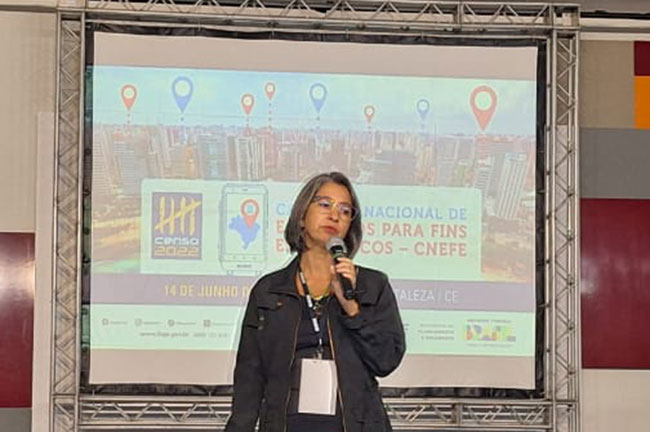
The IBGE signs technical cooperation agreement with IPECE and ALECE
During the release of the CNEFE data, the IBGE also signed a technical cooperation agreement with IPECE and with the intervention of the Legislative Assembly of the State of Ceará (ALECE). On behalf of the Institute, President Marcio Pochmann and the IBGE Superintendent in Ceará, Francisco Lopes, signed the document.
"This technical cooperation agreement started in 2009, and we have been partners for many years. Previously, these agreements used to last four years and this one will last ten years. Agreements like this are better for the agencies because they give them more peace of mind and security that the work will continue regardless of changes", explained Lopes.




